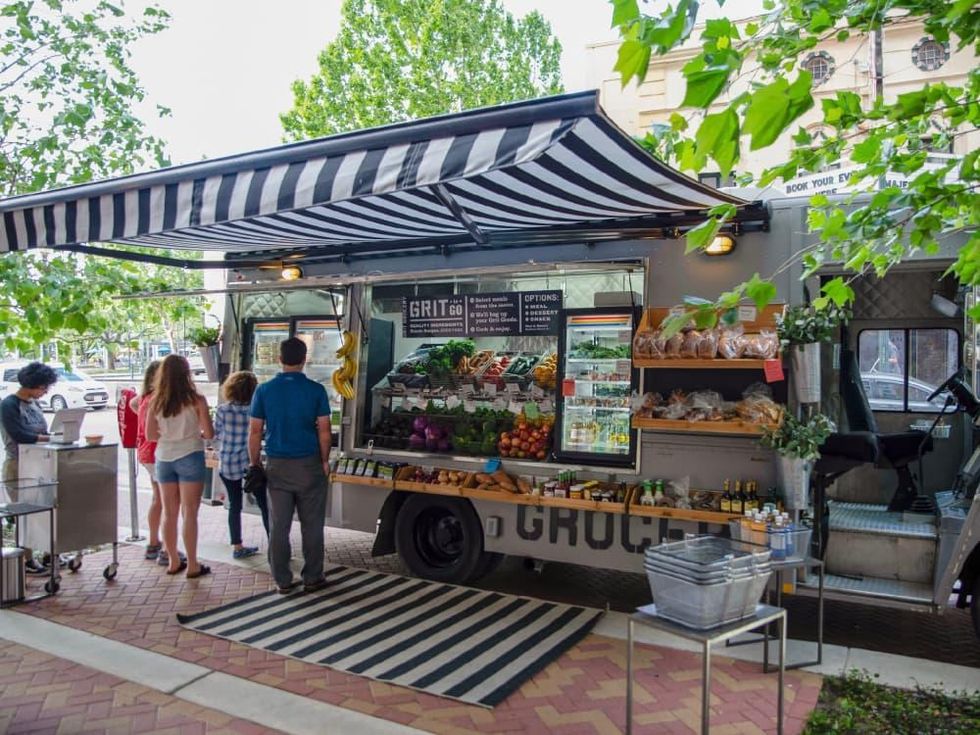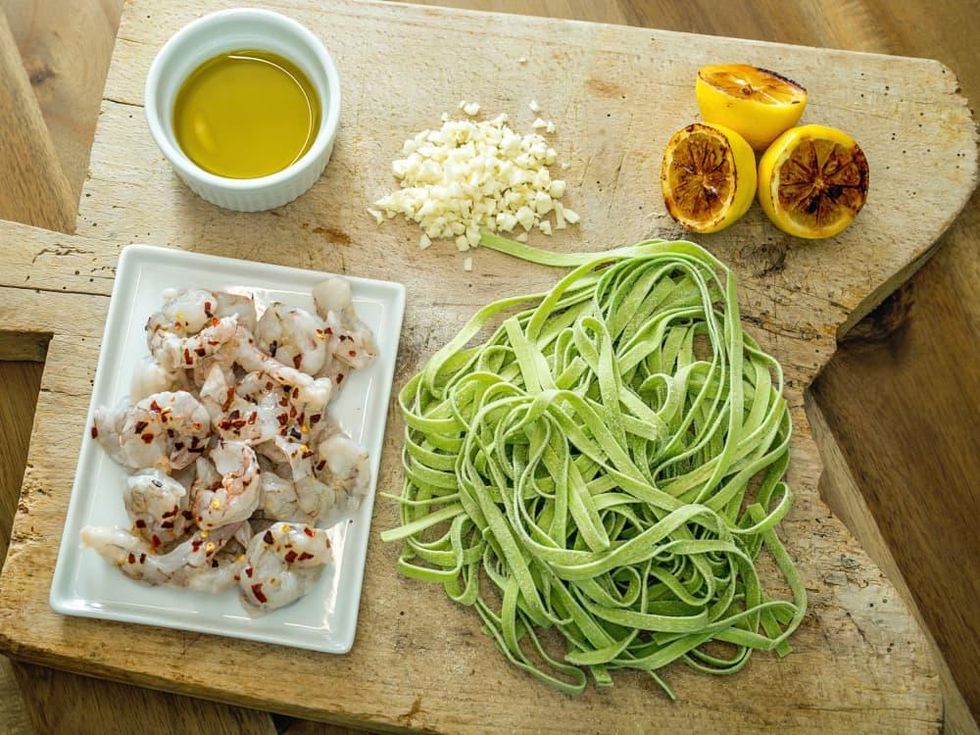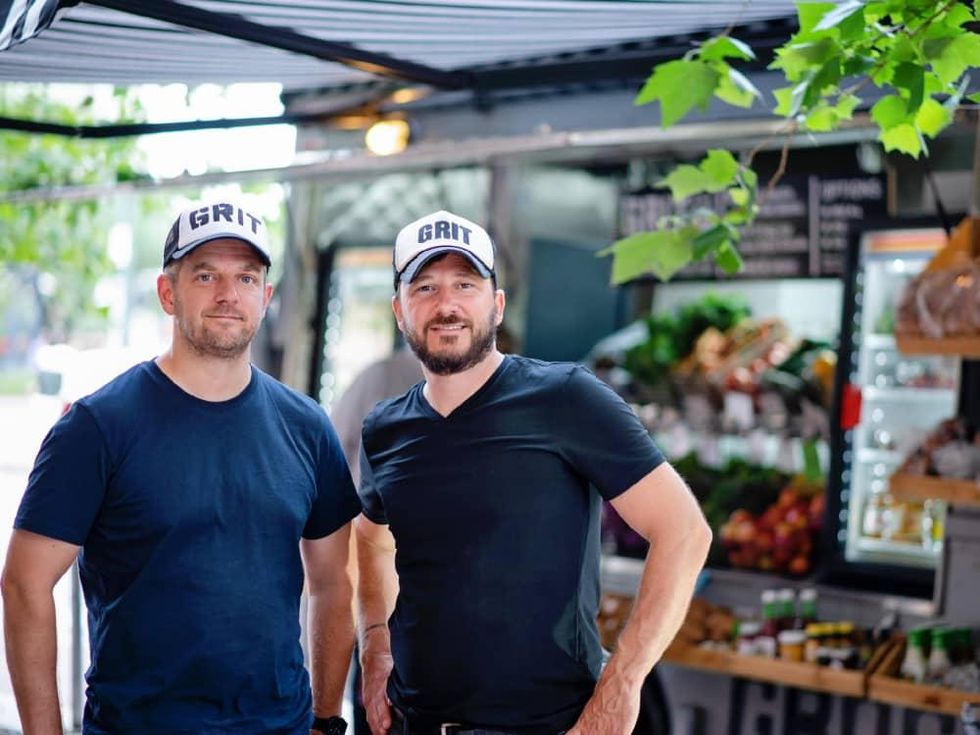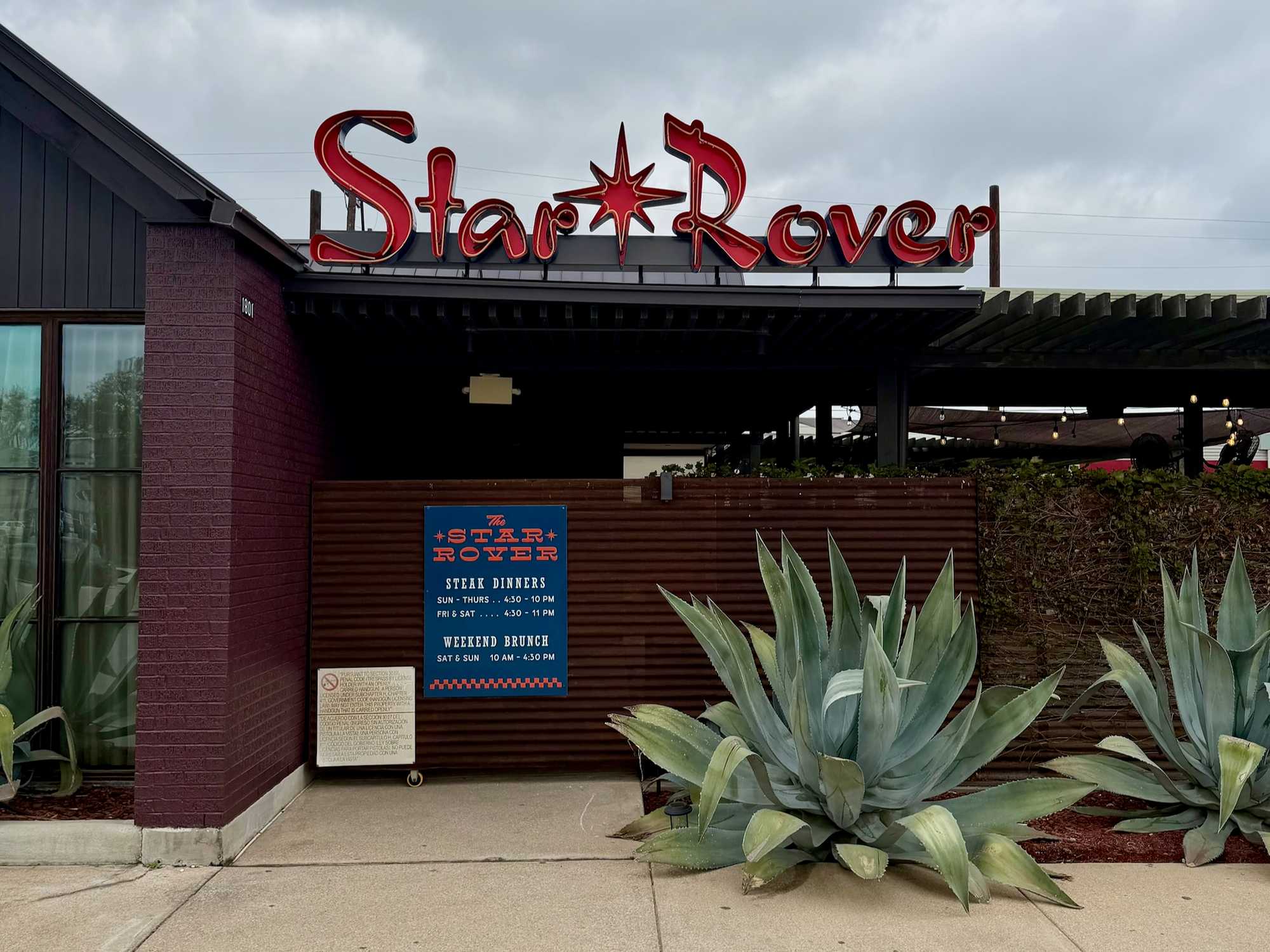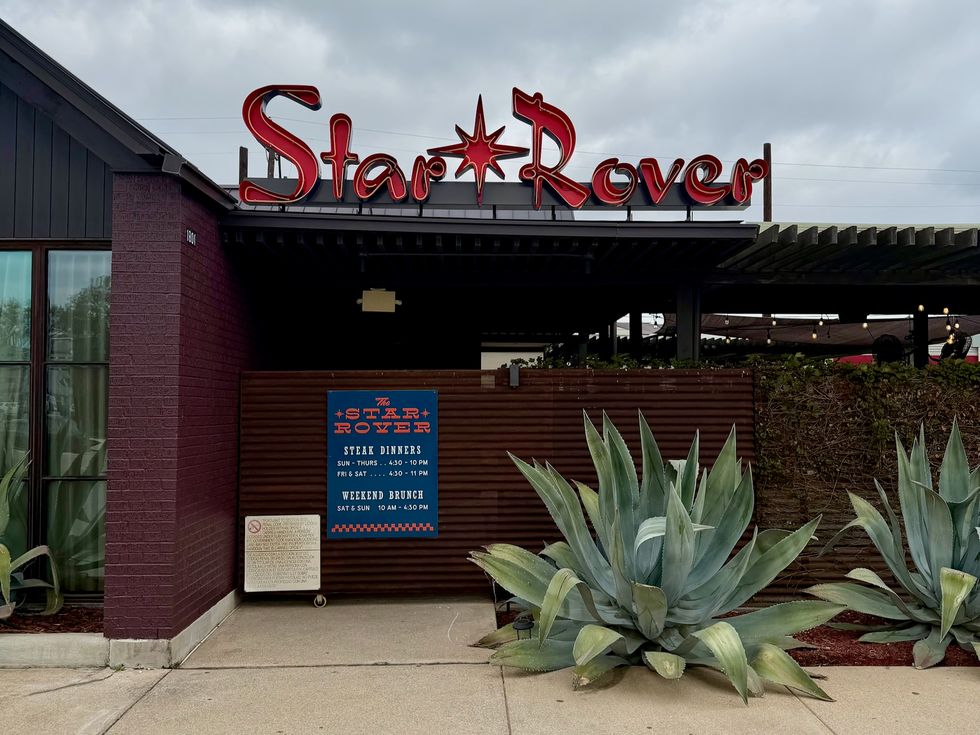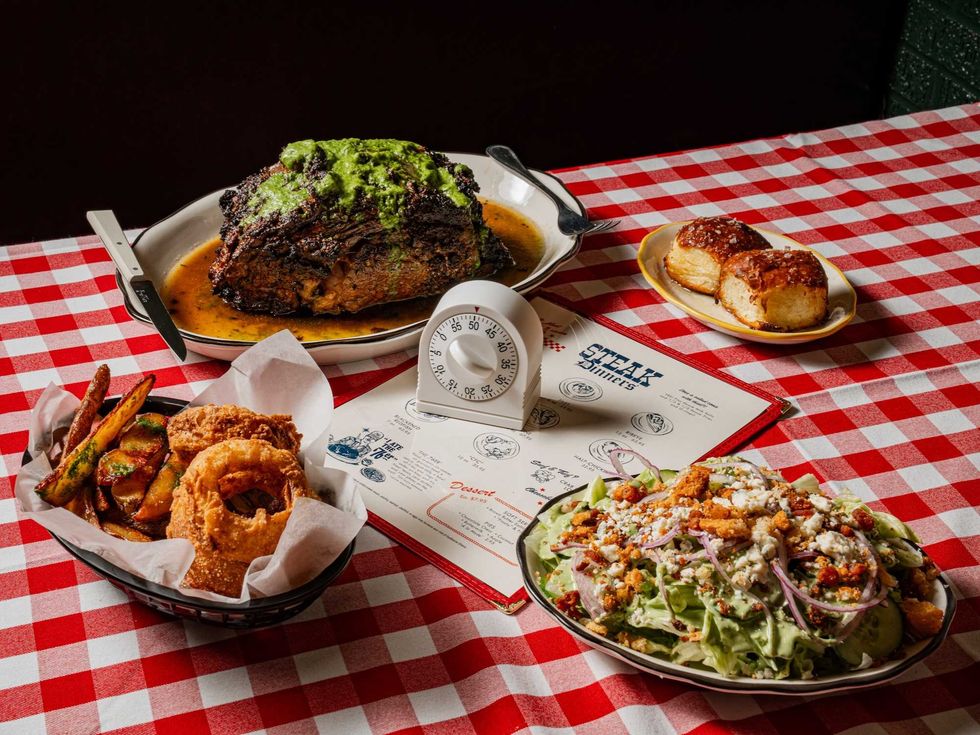Introducing Grit Grocery
Fresh food truck rolls out new healthy way for Houstonians to shop for their meals
By any measure, the grocery business is in a period of major changes. Amazon’s acquisition of Whole Foods, meal delivery kits like Blue Apron, and even H-E-B’s purchase of the Favor delivery app are all signs that the way people purchase food for their homes will be different in the future.
At the same time, the farm to table movement has made diners more aware than ever of where their food comes from. Home cooks can acquire local produce at places like the weekly Urban Harvest farmers market or through Community Supported Agriculture programs from local farms like Loam Agronomics.
A new business aims to put its own spin on all these trends. Grit Grocery is a food truck that sells fresh produce, meat, seafood, dry goods, and more. Founded by two men with Rice MBAs, Dustin Windham and Jamal Ansari, and a third, Michael Powell, who has a Ph.D. in Cultural Anthropology and has done extensive research into the way people shop for groceries, Grit aims to be a convenient way for people to purchase fresh, healthy food.
“We often like to say it’s a farmers market on wheels,” Powell tells CultureMap. “It’s mostly local product. We don’t do processed food. It’s everything you need to put together a whole meal.”
The truck operates on a set schedule (shared on social media) that takes it to a different neighborhood each weekday from 3 pm to 9 pm. Shoppers can either purchase raw ingredients to create their own recipes or “meal bundles” that offer all the ingredients needed to prepare a specific dish.
“On a day like today, I’ve studied this food stuff, shopping patterns and things like that, most people don’t know what’s for dinner tonight,” Powell says. “One of the things we really want to focus on is delivering that meal solution: something fresh, easy to cook, with really good ingredients . . . It’s really a more friendly and community-based experience versus the typical grocery store experience.”
Part of that experience comes from the Grit staff, who are trained to offer advice about where the ingredients come from and how to prepare them. Farmers market shoppers will recognize many of the purveyors, which include local farms like Gundermann Acres, Galveston’s Katie’s Seafood Market, Brazos Valley Cheese, and others. Prices are similar to Whole Foods, but Powell expects them to decrease as Grit’s buying power grows.
“Another thing is the typical grocery store has 30,000 products. We have about 300,” Powell says. “You can step up and see everything we have to offer. Simplifying the process, I think that’s where we have something to offer.”
The truck has been operating full-time for a couple of weeks. Customers have responded so favorably that Grit leased a 3,000-square-foot warehouse to store more product and has begun construction on a second truck that will allow it to reach more people.
Whereas a grocery store takes millions of dollars and years to build, Grit can spec out a new truck for about $50,000, which gives the business the flexibility to grow quickly. Ultimately, Powell says the partners would like to work with community organizations to find opportunities to bring Grit to food deserts that lack options to purchase the sort of fresh ingredients the truck sells. Grocery stores and mail order meal kits aren’t going away, but the partners feel bullish that Grit can establish its own niche.
“Food retail has always been evolving. I don’t think there’s any one solution,” Powell says. “Even grocery stores it seemed like they had it figured out and then a decade ago Whole Foods comes along, Trader Joes comes along . . . I’ve seen this happen in my work. I’ve seen the history of it. I feel like Grit is one more evolution of what’s going on out there.”
